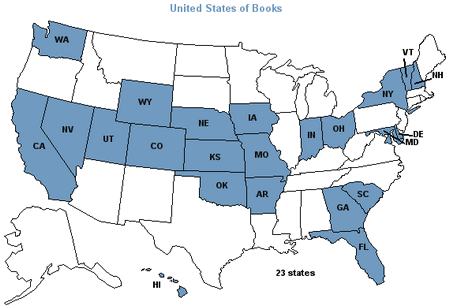This book comes out next week, and I’ll hopefully have a post up here tomorrow about it — and a Q&A with the author. Think about getting your hands on the book soon. In the meantime, enjoy this trailer.
Category: General Fiction/Literature Page 37 of 49
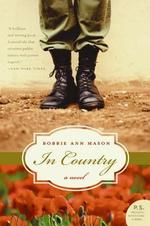 In Country
In Country
by Bobbie Ann Mason, Jill Brennan (Narrator)

Author: Teri at Sportochick’s Musings
Synopsis:
The bestselling novel and deeply affecting story of a young girl who comes to terms with her father’s death in Vietnam two decades earlier.
In the summer of 1984, the war in Vietnam came home to Sam Hughes, whose father was killed there before she was born. The soldier-boy in the picture never changed. In a way that made him dependable. But he seemed so innocent. “Astronauts have been to the moon,” she blurted out to the picture. “You missed Watergate. I was in the second grade.”
She stared at the picture, squinting her eyes, as if she expected it to come to life. But Dwayne had died with his secrets. Emmett was walking around with his. Anyone who survived Vietnam seemed to regard it as something personal and embarrassing. Granddad had said they were embarrassed that they were still alive. “I guess you’re not embarrassed,” she said to the picture.
Review:
In Country takes place in Hopewell, Kentucky and is the story of recent high school graduate Sam and her Uncle Emmett, a Viet Nam war vet. Sam is searching for the answers to the past regarding her dad and why her Uncle is so messed up. Emmett is just trying to survive and live one day at a time after returning broken from Viet Nam.
Sam has a strong desire to know more about the father she never meet, a farm boy, who went to Vietnam and never came back. So she begins her search by asking any one she knows about her dad. There is a point where I felt she would drive me crazy with the persistent questions but the author smooths out this roughness with resolutions to some questions via talking to her paternal grandparents and her mother Irene. Through a series of letters and a diary she finds answers that bring her peace and upheaval as well. This upheaval causes her to be able to finally make a decision on how to move forward with her life.
Another part of the story that drove me crazy was her constantly hounding her Uncle about all the things she felt was wrong with him medically. I understand her love for him and her desire for him to not die but yikes the constant harping what was wrong with him was too much. She was a hypochondriac for him.
Emmet and some of his war friends portray an intricate part to the story with their inability to have relationships, work, and socialize plus their various health issues. But also added to the story were other war vets that were able to have normal lives. This balance greatly added to the story and it’s correctness to real life. The scene where Tom, a war vet, spent time with Sam was painful and sad causing me to wonder was there ever a time after that that he was able to love someone and be fulfilled.
At one point in the book Emmet says, “There’s something wrong with me. I’m damaged.” that I started to cry. There was overwhelming pain for all of them and grief for my part in disassociating myself from this area of life. It dawned on me that we were all damaged in some way from this war.
- My Thoughts:
- US involvement for the Vietnam War lasted from 1955-1973 and consisted of approximately 58,200 Americans deaths and over 300,000 wounded.
- In 1973 the military draft (only for males) ends and an all-volunteer military is formed creating opportunities for women.
- In 1973 I graduated from high school with no good thoughts about our involvement in the Vietnam War. I lived through my friends’ fear of being drafted, death of loved ones, draft evasion, war protest, and the burning of college campuses. For me I disassociated myself from this war like many others and to this day I am ashamed to say I don’t get it. What I do get is how poorly we as a people and government treated the returning military.
This book caused me to think and open my mind to a time in my life that I had shutdown.
But it is much more than that for me; it brought forefront in my mind the suffering of the returning vets in regards to their families, health, mental wellbeing, as well as how the government and society in general treated them. This book profoundly affected me.
Though this book and its narration may not be for everyone, I listened to it three times because of its impact to me and how it caused me to see things from a new perspective. For this reason I give it 4 STARS.
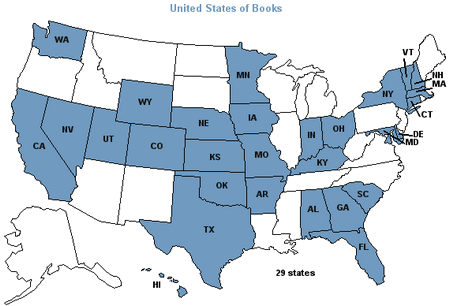
 The Witch of Blackbird Pond
The Witch of Blackbird Pond
Author: Wendy at booklovercircumspect4
Synopsis from Goodreads
Orphaned Kit Tyler knows, as she gazes for the first time at the cold, bleak shores of Connecticut Colony, that her new home will never be like the shimmering Caribbean island she left behind. In her relatives’ stern Puritan community, she feels like a tropical bird that has flown to the wrong part of the world, a bird that is now caged and lonely. The only place where Kit feels completely free is in the meadows, where she enjoys the company of the old Quaker woman known as the Witch of Blackbird Pond, and on occasion, her young sailor friend Nat. But when Kit’s friendship with the “witch” is discovered, Kit is faced with suspicion, fear, and anger. She herself is accused of witchcraft!
Review
The Witch of Blackbird Pond is an historical novel and a love story. The main character, Kit, was raised by her grandfather in Barbados. When her grandfather dies, she leaves Barbados on a ship named the Dolphin to find her aunt and uncle in Connecticut. Needless to say, her aunt and uncle doesn’t know that she is coming.
Upon her arrival to her Aunt Rachel and Uncle Mercy’s home in Wethersfield, Connecticut, where she also has two cousins, Mercy (who is handicapped) and Judith. Kit’s life is far different from her life in Barbados, where she is forced to do chores and attend church, which she clearly hates. Kit becomes happier when she and Mercy began teaching the younger children in her town. An incident happens at the school and it is shut down, and Kit runs away and she meets Hannah Tupper, an older lady that has been outlawed from the colony. While visiting Hannah, she again runs into Nat Eaton, son of the captain of the Dolphin, and Kat falls in love with him.
A deadly illness sweeps through the town and Hannah is accused of being a witch and is to be killed. Kit warns Hannah who escapes with the help Nat and his boat. The town is also accusing Kit of being a witch and she must prove her innocence when Nat returns to Westherfield.
Does Nat return help Kit? Is Kit found to be a witch? Or is she able to escape Connecticut and return to Barbados? You will have to read the book.
I give this book three out of four onions. This book is rich in American history and is a commonly read book for older grade schoolers. It also has a nice mixture of romance, politics and suspense. It really is a good read especially for young adults.
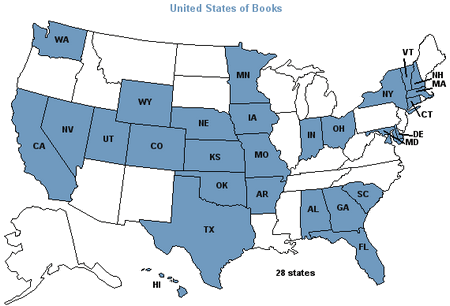
 Where’d You Go, Bernadette
Where’d You Go, Bernadette
by Maria Semple, Kathleen Wilhoite (Narrator)
Unabridged Audiobook, 9 hrs and 39 mins
Hachette Audio, 2012
Read: June 10 – 13, 2016

For whatever reason, when I talked about this book last time, it had been months after I read it, and I could’ve done better. I’m not sure that I’ll fix that now, but you never know . . .
First thing you’ve got to know about this book is that it’s funny. Flat out funny. Some of it may not come across that way when you read it, actually, I think it’d be pretty easy to think this is a serious novel about a disturbed or tragic woman. But you’d be wrong to think that (and probably wouldn’t like the book at all).
Sure, it’s clear that something went wrong with Bernadette in the past, and that she’s still dealing (or, better, not dealing) with it. But that doesn’t stop things from being hilarious as she struggles with leaving the house, fighting with the neighbor ladies/moms from school.
Her daughter, Bee, is great. She’s a tribute to brainy-daughters everywhere — her understanding of and devotion to her mom is what humanizes Bernadette. After her mother goes missing, she compiles emails, articles, and other documents from a variety of sources to explain the last few months and put everything into context. I wasn’t sure this aspect of it would translate into audiobook — or be understandable. It was perfect. More on that in a moment.
The story is compelling, heartwarming, and funny (more funny the second time around, it turns out). It’s one of my favorite books from the last few years. Either version is well worth the time.
What made me give this a higher rating this time? Well, I had a clearer idea about the whole thing and could just enjoy the ride. But mostly, it was Kathleen Wilhoite (and boy did I ever feel stupid for not recognizing her voice once I googled the name). The accents, the voices, the emotions, the mirth — the heart and soul — she put into her performance blew me away and made the whole thing more compelling than Semple did (which is saying something). Again, that she was able to take the strange format of the book and make it easy to track with the various “sources” Bee used. Really, just a great audio performance.
—–

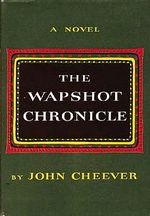 The Wapshot Chronicle
The Wapshot Chronicle
by John Cheever

Author: Elisha at Rainy Day Reviews
Entertainment Weekly says – Cheever’s glorious 1957 debut novel about a decidedly unconventional Massachusetts family was an instant classic, combining both humor and pathos in equal doses. It was also the first Book of the Month club pick that used the F-word.
Synopsis:
When The Wapshot Chronicle was published in 1957, John Cheever was already recognized as a writer of superb short stories. But The Wapshot Chronicle, which won the 1958 National Book Award, established him as a major novelist.
Based in part on Cheever’s adolescence in New England, the novel follows the destinies of the impecunious and wildly eccentric Wapshots of St. Botolphs, a quintessential Massachusetts fishing village. Here are the stories of Captain Leander Wapshot, venerable sea dog and would-be suicide; of his licentious older son, Moses; and of Moses’ adoring and errant younger brother, Coverly. Tragic and funny, ribald and splendidly picaresque, The Wapshot Chronicle is a family narrative in the tradition of Trollope, Dickens, and Henry James.
Review:
I was hesitant to read this book even though the author is obviously talented, because the title threw me for a loop. However, the author proves himself to be quite the eloquent and talented writer. You can tell the timeframe of this book by not only the syntax but by how and why Cheever framed the story.
There were themes within this book that were very relatable to any family in this story. Even in today’s modern and fast paced world, and I think that takes some talent when this story was not written for today’s world because our world today was only thought about futuristically. I enjoyed the fact that Cheever gives the reader a chance to get to know the characters within the story without giving it all away and instead lets us read the characters and learn about them and what makes them an individual through our reading.
I was surprised to see quite a bit of lust and fantasizing in the story, but it wasn’t graphic. But I also found that perhaps lust was equated to love in this story. Because of this, whenever a person was fulfilled in their love, I found myself smiling. The older wealthy ladies on the other hand, Honora for example, I found a little irritating. Their way of thinking is almost the exact opposite of mine and because of this I would find it difficult and challenging to be around them on a daily basis.
I would recommend this story, not simply because it is a classic but, because the story between Captain Leander Wapshot and his sons as well as Lender’s diary, make this a very interesting read.
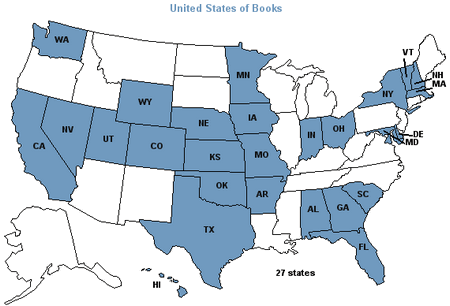
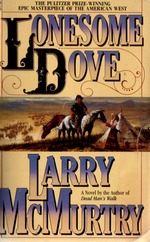 Lonesome Dove
Lonesome Dove
Author: C.H. Armstrong at C.H. Armstrong Books & Blog
When I learned I would have the pleasure of reviewing Larry McMurtry’s Lonesome Dove, I quite literally did a fist pump of victory. Simply stated, this is one of my all-time favorite novels, and one of the very few I would consider reading more than once. For that reason, I’ll not beat around the bush: I enthusiastically give this novel a full 5-star review. If I could give it more than 5-stars, I most certainly would.
So what’s it about?
I asked this question of those who originally recommended it to me, and the answer I received didn’t inspire enthusiastic thoughts: It’s the story about a bunch of old cowboys who go on a cattle drive.
Huh? How is that even remotely interesting? Why would I want to read about a cattle drive?
The answer is this: Just do it. I promise: You won’t be sorry.
Lonesome Dove is about a cattle drive, but it’s more than that. It’s about the strong ties of friendship between two former Texas Rangers, Captain August “Gus” McCrae and Captain Woodrow F. Call, two men who couldn’t be more different. While Call is stoic and serious, McCrae is often seen as more laid back and carefree. But the truth is that the two men, for all of their differences, are like yen and yang or two sides of the same coin. It’s almost a love story without the romance element. They complement each other and, while they seem to have nothing at all in common, they are simply not the same without the other.
Besides the main characters is a series of supporting cast members who round out the story…a 17 year old boy, the son of a prostitute, who suspects that Call might be his father; a young prostitute, Lorie, who just wants to get out of town; and the reprehensible coward, Jake Spoon, who abandons her and leaves her defenseless against the elements and those who would do her harm.
In truth, I sat down to read this book because I wanted to silence someone who insisted I read it…and so I talked my best friend (700 miles away) into reading it with me, just so I would have some company in what I thought would be a grueling read. To my surprise, it was action-packed, funny, heartbreaking, and truly one of the best books I’ve ever read.
Trust me – you don’t want to miss this book. If you read nothing else this year, pick up a copy of Lonesome Dove. You won’t be sorry!
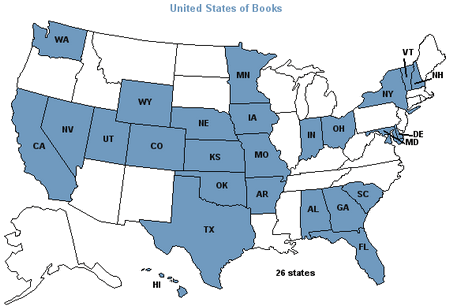
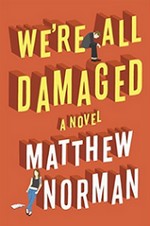 We’re All Damaged
We’re All Damaged
by Matthew Norman
Paperback, 268 pg.
Little A, 2016
Read: June 8 – 9, 2016

It’s a cruel fact that if your wife cheats on you, the guy will have a name like Tyler. Something cool–something your parents never would have had the guts to name you.
This particular Tyler is involved in Andy Carter’s wife leaving him (he’s not the cause, as Harry Burns’ buddy, Jess, would remind us, “Marriages don’t break up on account of infidelity. It’s just a symptom that something else is wrong.”). Karen uses the symptom as an excuse to dump Andy at an Applebee’s in the funniest and most tragic first chapter since Tropper’s This Is Where I Leave You.
Actually, there are several similarities between this book and This Is Where I Leave You — which is not to say that Norman’s ripping Tropper off or anything (although, it’d be a good book to steal from). It deals with some similar themes in a similar tone with similar heart. A few times Norman made me think of Tropper (I bet next time that the next time I re-read Tropper’s book, I’ll think of Norman’s).
Following the Applebee’s disaster, Andy sort of fell apart, I’ll spare you the details because Norman does a much more entertaining job of relating them than I could. But long story short, he quits his nice job and moves to from Omaha to New York and becomes a bartender, and is sort of adopted by a stray cat named Jeter (as has been well established, I’m not a cat person, but I liked Andy’s relationship — for lack of a better term — with Jeter). While licking his wounds — or whatever — he pretty much cuts off communication with his family and friends. Not out of spite or anything, but it just seems to take too much energy.
For a while now, I’ve had to keep reminding myself that I’m a nice person. Like, nice nice. Midwestern nice. Half the people who signed my high school yearbook told me so–it’s documented. A few of them even mentioned that I should never change, never ever. I once helped a blind lady walk across a grocery store parking lot in the rain. I used to run 5Ks on Saturday mornings to fight cancer and juvenile diabetes and all of that horrible shit.
Time moves on, as it tends to outside of SF novels, anyway. Before he knows it, Andy’s being stood up for a blind date and he gets a call that his grandfather is about to die. A grandfather that Andy’s pretty much ignored for over a year. So Andy goes home, after promising his boss/friend that he won’t have anything to do with Karen.
Want to bet he keeps that promise? Yeah, me neither.
He doesn’t recognize his parents, the kind of house they live in, or the notoriety his mother (a conservative radio talk show host) is enjoying. His grandfather, suffering from dementia (amongst many other things), doesn’t recognize him, either. Andy is recognized by his former best-friend/ex-brother-in-law, his brother, his parents, his ex-father-in-law, a few people he’s never met. Including someone claiming to be his sister. Oh, and Tyler.
She calls herself Daisy, “smeller of books and a marker-upper of books,” and actually has a pretty good reason to calling herself his sister. But she has other plans for him — inspired by the stories his grandfather’s been telling her, Daisy has decided to fix Andy. She sports multiple tattoos, has no discernible source of income, and marks up books. Really, not the kind of person a respectable young man should be associated with — even a formerly respectable young man. But man, I really, really liked Daisy (marking up books notwithstanding), I can almost guarantee you will, too.
You’ll probably like Andy, his grandfather, father, niece and ex-friend, too. Forget about liking Tyler, just not going to happen. I’m not sure where you’ll come down on Mom. I’m not sure where I come down on mom, either.
I’m not sure you’re supposed to have a firm opinion about her, either. My one complaint with the book has to do with Mom. The novel takes place in the weeks leading up to the
Obergefell v. Hodge decision, and since Mom’s a conservative talk show host on the verge of nationwide fame, the case is mentioned a lot. No one, on either side of the issue, deals with it in a substantive manner — it’s all sound-bites and bumperstickers. Frankly, something so important should’ve been dealt with gravitas, not in sloganeering and cartoonish representatives. Sadly, by and large that’s all that the Internet, TV and radio gave us — so that really Mom (and her vocal opponents) were realistic representations of a lot of our country. Not the best part of it, sadly, just a large part. I can’t fault Norman for focusing on them just because they were realistic just because I wish they weren’t.
So, while maybe coming out of the ruins he’s made of his life and personality, Andy mends some fences, further ruins some more, connects with his father in a way he hadn’t in a long time, and maybe even gets a little closure. He also makes a fool out of himself, gets punched, and has to attend his grandfather’s funeral. Thanks to Daisy’s pushing, he may not be living a good life — but it’s one a lot more interesting than just wallowing in the past.
At a certain point, you pretty much figure out exactly how things are going to go in the book — and you’ll be right (except for the once or twice where you’ll be really wrong). But it doesn’t matter, because things work out the way they should, and Norman works them out in a pleasant, engaging style.
I liked Andy’s ambivalent relationship to technology — the imaginary conversations he has with Siri made me grin. And then there’s his first brush in months with Facebook.
I’ve given it some thought, and, seriously, there’s just no way Facebook can be good for you. I’m sure there have been studies, so this probably isn’t some brilliant revelation, but I’ll say it anyway. On the surface, it’s harmless enough, I guess. How bad can it really be with its endless baby posts, food pictures, and beachy foot selfies? But it’s not that simple. Mixed in with all of its silly bullshit, Facebook is the literal manifestation of all our regrets, looping and looping, for free, on our computers and phones. People who should be gone and safely out of forever are there again, one cryptic little glimpse at a time, reminding us of all the things we should or shouldn’t have done.
Seriously, Norman deserves some sort of literary prize for the “literal manifestation of all our regrets” line, right?
There’s also a cameo in here that was such a nice touch.
This was a very amusing book — frequently funny. This was also a touching book — I might have gotten misty once or twice. More than anything else, this was engaging — I was right there with Andy the whole time, cringing when he was being stupid, grinning when he was being charming or mature. I enjoyed this one so much that I can’t quite figure out how to say it. Norman belongs up there with Nick Hornby, Jonathan Tropper, Rainbow Rowell and Jennifer Weiner — he can make you laugh, make you cry, make you feel, all while telling a pretty good story. I should go back and re-read his other novel, just to be able to prove this. But until I do, just take my word for it and give this a shot.
—–

It’s just not fair (and probably fixed) that the organizer of this little project got to read To Kill a Mockingbird, easily one of my favorite 2 novels of all time. I just checked, and over 3% of the posts here reference Harper Lee in some way — given the number of authors I’ve mentioned at least in passing, that’s saying something. So to have someone else write the first full-length post on this book here bothers me (and makes me wonder just what I’ve been doing the last few years that I haven’t posted about it yet). But anyway, enough of the jealous ranting — on to Laura’s post!
Welcome to the halfway point of the United States of Books! We have now reached review number twenty-five and six months of reviews. I can’t thank the team of reviewers enough and our fantastic readers. To say thanks to you all, we are giving away a $25.00 Amazon gift card for 1st place and then a copy of any of the US of Books books (winners choice) Kindle or physical copy (INT) as long as Book Depository delivers, for 2nd place.
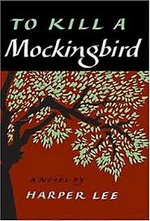 To Kill a Mockingbird
To Kill a Mockingbird
by Harper Lee

Author: Laura at 125Pages.com

Synopsis
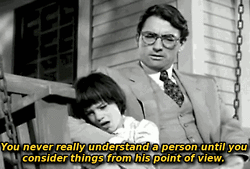 Harper Lee’s Pulitzer prize-winning masterwork of honor and injustice in the deep south—and the heroism of one man in the face of blind and violent hatred.
Harper Lee’s Pulitzer prize-winning masterwork of honor and injustice in the deep south—and the heroism of one man in the face of blind and violent hatred.
One of the best-loved stories of all time, To Kill a Mockingbird has been translated into more than forty languages, sold more than thirty million copies worldwide, served as the basis for an enormously popular motion picture, and was voted one of the best novels of the twentieth century by librarians across the country. A gripping, heart-wrenching, and wholly remarkable tale of coming-of-age in a South poisoned by virulent prejudice, it views a world of great beauty and savage inequities through the eyes of a young girl, as her father-a crusading local lawyer-risks everything to defend a black man unjustly accused of a terrible crime.
Review
This week takes us to Alabama with To Kill A Mockingbird by Harper Lee. EW says – “Forget the dubious sequel. Lee’s exceptional work is a perfectly contained miracle about the struggle for justice in a system built to destroy it. From Birmingham to Tuskegee, Alabama was a burning center of racial conflict, and this novel takes place right on the outskirts of that crucible.”
To Kill A Mockingbird by Harper Lee is one of the first “grown-up” books I remember reading. It was the summer before 7th grade and I was a precocious twelve-year-old. I loved that the person telling the story was a smart young girl and that she was so very different from other book narrators that I had been exposed to. I read it at least once a year and loved when it was on the book list in sophomore year, as it made the book report easy to do. As I got older, I stopped reading it as often, and as I picked it up this time realized it had been at least ten years since I had last picked it up. As I cracked the cover on my old worn copy, it was like stepping back in time to a period in my life that had long since passed.
I wanted you to see what real courage is, instead of getting the idea that courage is a man with a gun in his hand. It’s when you know you’re licked before you begin, but you begin anyway and see it through no matter what.
To Kill A Mockingbird is a complex story of a young girl, six-year-old Jean Louise Finch (Scout), who lives with her lawyer and widower father Atticus and her older brother Jem. Scout and Jem, together with the neighbor boy Dill, are fascinated with their reclusive neighbor “Boo” Radley, a recluse that is never seen. They begin to spin tales about him and try to entice him outside. Meanwhile their father is assigned a case defending a black man, Tom Robinson, who has been accused of raping a young white woman. The two stories weave together in a powerful tale of race relations in a small southern town coming out of the Depression. Harper Lee crafted a tale of morality and family that still resonates today.
As you grow older, you’ll see white men cheat black men every day of your life, but let me tell you something and don’t you forget it—whenever a white man does that to a black man, no matter who he is, how rich he is, or how fine a family he comes from, that white man is trash.
Love and murder, racism and redemption, all combine to make To Kill A Mockingbird a classic that will remain read for years to come. The way that Harper Lee combined wide-eyed youthful curiosity with the recollections of a grown woman make this a very interesting read. The style of the story telling is unique and matches the very detailed plot. The world created and described by Scout is vivid and real, and I could picture the scenes unfolding quite clearly.
Now that I have rediscovered Lee and Mockingbird, I regret ever leaving her world. A Pulitzer Prize winner, To Kill A Mockingbird is a book that well deserves its accolades as well as its criticisms. It does feature many difficult topics and language that in today’s world is considered unacceptable. I believe stories such as this still need to be told as we need to remember what used to be commonplace. I will now try to plan an annual re-read to return to this fascinating world. And, as said so well by Scout, “Until I feared I would lose it, I never loved to read. One does not love breathing.”
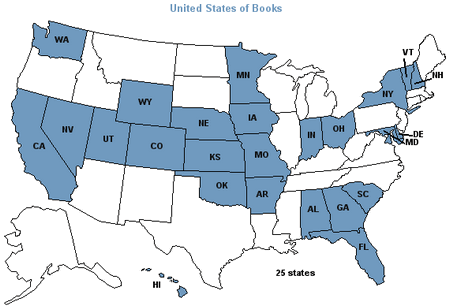
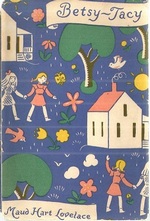 The Betsy-Tacy Treasury
The Betsy-Tacy Treasury
Author: Serena Agusto-Cox at Savvy Verse & Wit
The Betsy-Tacy Treasury by Maud Hart Lovelace, which is the first four books in this 10 book series, was praised by Entertainment Weekly as “a rosy remembrance of a region already known for its niceness.” My daughter and I read these together over many weeks, reading little more than a chapter every couple of evenings.
Betsy-Tacy is the first book in the series, and young readers are introduced to five-year-old Betsy who lives in Deep Valley, Minnesota. She lives in a small mill town at the end of Hill Street, but she’s soon to have a new neighbor, as a new family moves into the house across the street. My daughter was thrilled to hear about a girl her age, and she was even more excited when I told her that there were pencil-like sketches inside for her to visualize what we were reading. Transitioning from only picture books to chapter books can be hard, especially for kids who love visuals. Betsy soon has a new friend, Tacy, and they share big imaginary adventures together before her baby sister arrives and before they even meet Tib, whose family is from Milwaukee and live in the chocolate-colored house they covet. Entertainment Weekly‘s assessment of a “rosy” picture of a “nice” little town is highly accurate, and it’s clear that this story takes place some time ago before many worried about strangers, criminals, or had cars, cellphones, and televisions. Imagination was a commodity that children needed in large supply. This is not to say that Betsy, Tacy, and Tib do not get into trouble.
Rating: Cinquain
Betsy-Tacy and Tib is the second book, and the girls are now eight years old. It becomes clear that even though these books were written during a time when women were supposed to be mothers and wives, these girls have bigger dreams. Betsy is a storyteller and she seems to have dreams of writing books, while Tacy wants to be a mother to a number of kids, just as her mother is. Tib is torn. To be an architect/engineer, mother, dancer, or something else. When kids think about what they want to be when they grow up, their dreams are big and seem to be out of reach. They are fantasies, like many of the stories these girls create in this book for Tib’s Aunt Dolly and themselves. My daughter is riveted by these books and the fun and trouble these girls get into, from visiting the Mirror Palace to cutting chunks of their hair off to put in lockets. These books remind me of the good old days when dreams were interchangeable and wonderful.
Rating: Cinquain
Betsy and Tacy Go Over the Big Hill is the third book and the girls are now age 10. It’s great how accurate Maud Hart Lovelace captures the competition between young kids when it comes to celebrating birthdays and feeling left out when others have birthday parties and they do not. But, ultimately, everything turns out well between Betsy, Tacy, and Tib, only to have a quarrel between Betsy and Tacy and their older sisters over who will become queen. This book has a lot in it about conflict resolution, which younger kids can definitely use as friendships grow and change, as well as in their relationships with siblings. My daughter enjoyed this one, but was a little unsure of the hubbub about kings and queens, even though she is an avid fan of princesses. I liked the historical details about the Syrian immigrants and foreign affairs involving the King of Spain, as well as a tidbit about the current president being Theodore Roosevelt. However, there are some “old-fashioned” ideas about immigrants and other cultures here that might need further explanation.
Rating: Quatrain
Betsy and Tacy Go Downtown is the fourth book, and at age 12, Betsy, Tacy, and Tib are a little too old for my daughter. She lost interest in this book series with this book, as their adventures downtown and their prodding of Winona to take them to see the play Uncle Tom’s Cabin did not resonate with her. She’s more interested in make-believe games and stories, and while these girls act as girls probably do at this age, manipulating a classmate is not a lesson I’d like my daughter to learn. It’s also interesting from an adult perspective to see how times have changed — a prized possession for one of the girls is a beer calendar! But here, we also see Betsy grow up and take an adventure to the new library on her own. While she apprehensive, she’s happy to be on her own and she thrives in the books she finds and reads, but also in the attention she seems to receive from others about her own writing. It’s wonderful to see her parents support her writing/art. It’s a lesson that is often not passed on today, as kids are tested and too focused on subjects that will net them lucrative careers.
Rating: Tercet
Average rating for all 4 books: 4.25
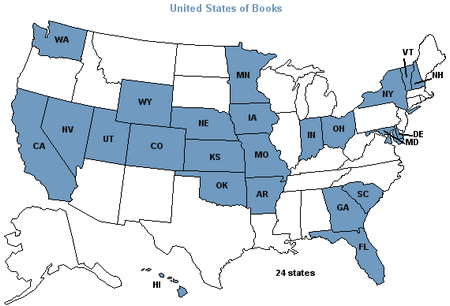
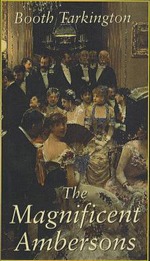 The Magnificent Ambersons
The Magnificent Ambersons
by Booth Tarkington
Series: The Growth Trilogy, #2
Mass Market Paperback, 346 pg.
Tor Classics, 2001 (first published 1918)
Read: May 12 – 14, 2016

… the grandeur of the Amberson family was instantly conspicuous as a permanent thing: it was impossible to doubt that the Ambersons were entrenched, in their nobility and riches, behind polished and glittering barriers which were as solid as they were brilliant, and would last.
If only, if only . . .
How do you enjoy a 300+ page book with a protagonist who is an arrogant, petulant, jackwad with no obviously redeeming qualities for the first 300 pages? Well, it’s tough. But if it’s as well told as The Magnificent Ambersons, it’s possible.
Sure, that’s a little bit of a spoiler — George Amberson Minafer does develop a couple of redeeming qualities in the last 30 pages or so. But you know what? The book is almost a century old, you’ve had plenty of time to read it if you’re worried about spoilers.
The plot is straightforward: At the dawn of the Industrial Revolution, an impossibly rich family produces an arrogant twit as the only heir. Unbeknownst to him, the economy is changing and the family is beginning to fall on hard times. Too proud to admit it, they continue living as if they have all the money in the world. Meanwhile, the twit falls for a girl who’s humble, kind, and wise. For some inexplicable reason, she falls for him, too. Things happen, they don’t get together and the bottom falls out on the Ambersons. There’s family drama, too — between the financial crisis, health problems, love, old flames, and scandal, there’s plenty to entertain a reader (if they can put up with younger George).
Most of the characters are pretty thin — there are exceptions (George’s mother, aunt and non-ambassador uncle, are the best) — but even the developed ones aren’t as fleshed out as we would have them today. But it fits with Tarkington’s overall style. It’s very, very difficult to like most of the people on these pages. So the ones you’d normally sort-of like, you end up really enjoying.
What makes this book work is Tarkington’s style. It’s hard to describe — highly detailed (for example, there’s so much attention paid to clothing and fashion that you’d almost think Gail Carriger had a hand in this), with a dry sense of humor, and plenty of cultural commentary. He changes his focus repeatedly: he’ll jusmp months or years at at time, and summarize events from those months in a paragraph or less and then cover a single evening in 15 pages, so he can highlight what matters and ignore the rest. But better than the plot (or characters), you get lines like this: “Some day the laws of glamour must be discovered, because they are so important that the world would be wiser now if Sir Isaac Newton had been hit on the head, not by an apple, but by a young lady.” How do you not keep reading for things like that?
Tarkington takes time out from the narrative to say
Youth cannot imagine romance apart from youth. That is why the roles of the heroes and heroines of plays are given by the managers to the most youthful actors they can find among the competent. Both middle-aged people and young people enjoy a play about young lovers; but only middle-aged people will tolerate a play about middle-aged lovers; young people will not come to see such a play, because, for them, middle-aged lovers are a joke–not a very funny one. Therefore, to bring both the middle-aged people and the young people into his house, the manager makes his romance as young as he can. Youth will indeed be served, and its profound instinct is to be not only scornfully amused but vaguely angered by middle-age romance.
I assume that captures the spirit of the late 19th/early 20th Century — if you take out the word “play” and put in “film” or “show,” it does a pretty good job of capturing the spirit of the early 21st Century, too. Which is a pretty nice achievement for a piece of writing.
The book isn’t a chronicle of the changes to the American culture/economy due to industrialization, it’s a family drama. But if you pay attention to what’s going around the lovebirds, cads and gossips, you can see those changes taking place. It’s a temptation for someone to cheat a little when writing historical fiction and make characters seem smarter than they are by knowing how predictions would actually turn out, Takington’s not above falling into that. Note what Eugene Morgan, early designer of automobiles says:
“With all their speed forward [automobiles] may be a step backward in civilization–that is, in spiritual civilization. It may be that they will not add to the beauty of the world, nor to the life of men’s souls. I am not sure. But automobiles have come, and they bring a greater change in our life than most of us suspect. They are here, and almost all outward things are going to be different because of what they bring. They are going to alter war, and they are going to alter peace. I think men’s minds are going to be changed in subtle ways because of automobiles; just how, though, I could hardly guess. But you can’t have the immense outward changes that they will cause without some inward ones, and it may be that George is right, and that the spiritual alteration will be bad for us. Perhaps, ten or twenty years from now, if we can see the inward change in men by that time, I shouldn’t be able to defend the gasoline engine, but would have to agree with him that automobiles ‘had no business to be invented.'”
That was 98 years ago, think what he’d say now about the automobile’s impact on culture (he’d probably cite James Howard Kunstler’s The Geography of Nowhere).
A dull(ish) story, full of unsympathetic characters acting foolishly (on the whole), with a quaint writing style that somehow makes it all work. I can’t explain it, I’m just glad I read it. You just might feel the same way, give it a shot.
—–

